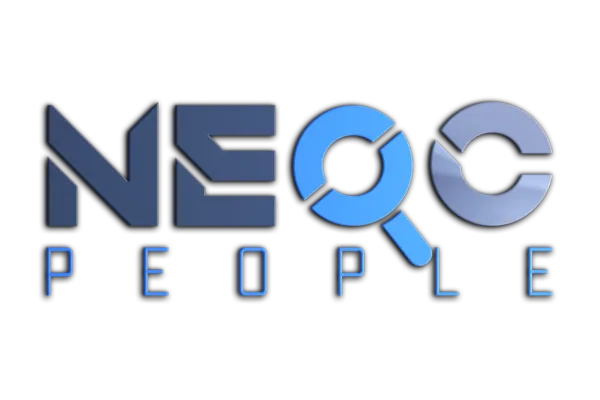For those considering a career change, job interviews can be quite stressful. It’s no surprise that a strong interview is a huge determining factor in securing a new position. The more prepared you are, the stronger you will perform in the interview which will result in a better outcome. In this article, we have curated a list of the top do’s candidates for candidates to ensure their interview goes as smoothly as possible.
Do your homework and research the company
Doing your research is the most crucial thing you should do before going to a job interview. You should learn everything you can about the organization, including its goals, mission, products, and services. Furthermore, it's critical to learn more about the position you're applying for. In fact, according to a recent survey, 30% of employers consider “blacklisting” candidates who apply to jobs they are blatantly unqualified for. To prevent making a bad first impression, ensure you read the job description thoroughly and come prepared to tell HR about your best characteristics and professional experience.
Dress the part
You must dress appropriately to impress the employer with whom you are interviewing. Avoid wearing your everyday clothes, such as leggings, and instead dress in business attire, suites, a gorgeous dress, or a pantsuit if you're a lady. Always dress appropriately, with a focus on professional business clothes, good cleanliness, and presenting yourself in the manner you want the employer to see you. A rule of thumb is avoiding anything that shows too much skin or makes you look unprofessional. If you have any doubts, email your recruiter, and ask what dress code they recommend for the interview.
Be punctual
Arrive at least 15 minutes before the scheduled time on the day of the interview. Punctuality is a valuable attribute that hiring managers and employers look for since it offers them an indication of how timely you will be on a daily basis if you are hired for the job. Consider arranging your clothing the night before and ironing it the next day to guarantee that you arrive on time. You should also make sure you have a copy of your resume and cover letter in your handbag or briefcase the night before. Set an alarm and make sure you'll be able to be there on time for the interview.
Practice good manners and body language:
From the time you walk into the building, use confident, approachable body language. With your shoulders back, sit or stand tall. Take a deep breath and slowly exhale before the interview to help control nervousness and boost self-confidence. To begin a handshake, the interviewer should extend their hand first. Stand tall, smile, and look the individual in the eyes. A decent handshake should be strong but not forceful.
Pay attention and actively listen
The objective of an application is to have a written profile of each candidate. These forms may have precise information that put our ability to pay attention and follow instructions to the test. As a result, attempt to figure out what kind of information the interviewer is looking for so you don't have to second-guess your communication and comprehension abilities, and if you're not sure, ask. This will ensure a seamless start to your first day.
Prepare smart, open-ended questions to ask the interviewer
During or after the interview, hiring managers frequently ask candidates whether they have any questions. Interviewers look for candidates that ask genuine inquiries in order to learn more about the firm and the position. Arrive at the interview prepared with a few questions to ask the interviewer that shows genuine interest in the position and allow you to address aspects of the work that were not covered during the interview.
Be open
Each job interview is unique. The purpose of an interview is to evaluate various skills depending on communication and how long you intend to stay with the organization. Because nervousness might affect our relationships, it's critical to be open and honest about our experiences. We should also be proactive in providing information about any anticipated plans, such as schedules and duties, that may impact your position and overall experience with the organization. Another point that applicants may neglect is that they should not over-practice or rehearse; sounding scripted is never a good thing.
Be confident
Interviewers' perceptions of you are heavily influenced by your confidence. Arrive at the interview prepared to confidently explain your experience, accomplishments, and abilities, demonstrating your belief in your ability to perform the duties of the post you sought for. Rather than merely boasting about your credentials, work to portray a balanced and courteous sense of confidence.
Show interest
During a job interview, it's critical to show genuine interest in the role. If you appear uninterested or unconcerned with the outcome of the interview, the interviewer may conclude that you don't actually want the job or care about the conclusion. Work to demonstrate a genuine interest in the organization and position, as well as a love for your work and ability to execute the job's responsibilities.
Follow-up
Many recruiters and hiring managers believe that following up shortly after an interview is critical. A simple thank-you card, or email can go a long way toward demonstrating to the interviewer that you are truly interested in the job and appreciate their time. Send a follow-up email or note the same day, or the next day at the latest, after the interview.
Whether you're a recent graduate looking for your first job or a seasoned professional trying to advance in your career, job interviews may be nerve-wracking. However, interviewers understand that most candidates are scared. As a candidate, you'll have a lot of questions running through your mind, such as what to wear and what questions to ask. As a result, it is critical to prepare because this will answer many of your questions and ensure that you perform at your best with a favourable conclusion.
Bonus tip: Smile! Hiring managers and recruiters have emphasised the importance of body language during your job interview, and your smile is your primary form of body language. In the current job market, hiring managers don’t just look for qualifications anymore; they look for a personality and a level of energy that matches their workplace environment. Smiling during an interview is a great way to show a potential employer that you share similar interests and have the potential to be a fresh, new addition to the team.

